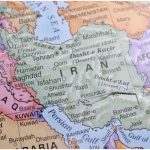IDR Blog
Extrajudicial Killings Threaten Bangladesh’s Human Rights
Extrajudicial killings in Bangladesh have recently acquired a new dimension with the Rapid Action Battalion (RAB) and other law enforcing agencies choosing to justify them by terming the encounters as a “war on drugs.”
There are diverse ways of shooting suspected criminals at point-blank range and publicizing these incidents of “cross-fire” or “encounters” with other similar terminology like “gun fights”, “in the line of fire,” and so on. The security forces justify the killings by using the terms “crossfire,” “war on drugs” and so on, which implies that firing happened between alleged criminal groups or “hardened” criminals and the RAB or police.
A leading Bengali newspaper, Prothom Alo, reported on May 22, 2018 that, in the last 8 days, there have been 38 such victims in this illegal form of bringing down crime in the name of “zero tolerance” against drug peddlers.
On Tuesday, May 22, 12 people were killed, the highest number in a single day. Different Human Rights Organizations have expressed their deep concern over this illegal violation of human rights.
According to police statements, these people (victims of encounters) are hardened criminals dealing in drugs against whom there are numerous allegations of heinous crimes.
The Director General of RAB declared that he would uproot criminals dealing in drugs. In a recent statement, he said he was taking the lead after a statement by Prime Minister Sheikh Hasina who urged law enforcement agencies to commence anti-narcotics operations in a manner similar to anti-militant operations.
If it is true that these victims are indeed criminals, nobody would resent their punishment after a fair trial being provided to them under the provisions of existing laws relating to drugs and narcotics smuggling.
In no way can anyone be permitted to kill anyone without any trial as per the law. Going by examples elsewhere, the “war on drugs” and such extra-judicial killings have not brought any fruitful outcome either in The Philippines or Mexico. Such killings only increased negative social perceptions and political costs and were used to create a situation of fear and anxiety among ordinary people.
Article 32 of part three of the Constitution of Bangladesh states: “No person shall be deprived of life or personal liberty, except in accordance with law.”
Furthermore, Bangladesh is a state party to several major international human rights treaties, including the International Convention on Civil and Political Rights (ICCPR), signed on September 6, 2000, and the Convention against Torture and Other Cruel, Inhuman or Degrading Treatment or Punishment that provokes the grave violations of human rights.
Bangladesh is thus, among other things, obliged to ensure that no one is subjected to torture and that, in the determination of a criminal charge, everyone is entitled to a fair and public hearing by a tribunal established by law, and to be presumed innocent until proven guilty.
Also, however, according to the Bangladesh Penal Code sections 96 to 106, as the right of private defence, every person has the right of private defence to protect his life & properties and others’ life & properties. In this regards a person can cause death or any other harm to the assailant under certain conditions, and law enforcing agencies engage in ‘crossfire’ to exercise their right of private defence. Thus, these killings go beyond the Constitution, international commitments, criminal law, penal code and the courts, and are totally unfair, unjust and illegal.
However, they have been legalized at different times by using different sorts of terms – “war on terror”, “war on drugs”, “gun-fights”, “encounters”, and so on.
There have been allegations from different human rights groups that this illegal practice has also been used to suppress political opponents in Bangladesh and, most of the time, innocent people suffer.
No investigation has been done and no legal action has been taken against the criminal and human rights violations by law-enforcement agencies. Besides, the lack of regard for due process is rooted not only in a culture of no accountability, but also indicate the likely impunity of higher authorities, and this must change.
If this is allowed to continue, nobody will be exempted from the unintended consequences and the entire situation could spiral out of control in the near future.
Killing alleged criminals, in utter disregard of constitutional provisions, human rights, laws and the penal code, without any fair trial is a great injustice against humanity and grave threat to the fundamental right to life and right to justice. It is time for all sections of society to stand up against these injustices and say “No” to extrajudicial killings.




